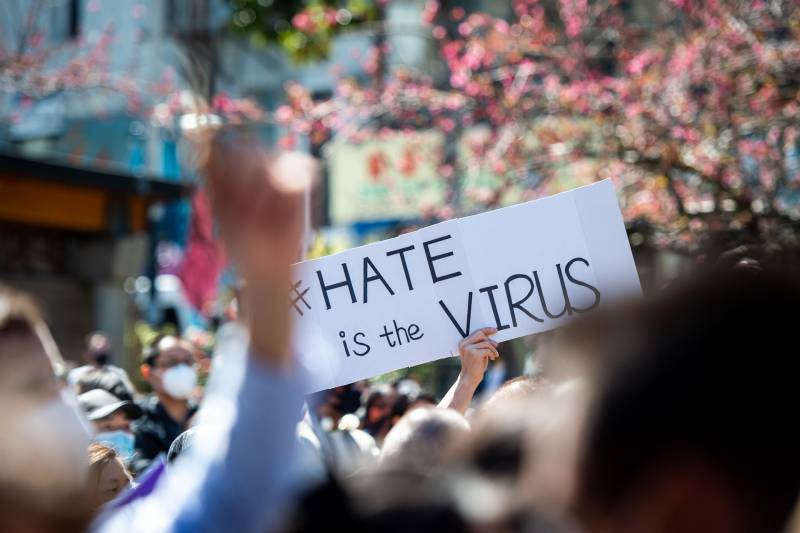It’s now been over two weeks, and what she initially created as a shared Google document is publicly available for anyone to access and serves as a curriculum resource in an effort to ensure a better understanding of the experiences of Asians in the U.S. and of U.S. colonization, more broadly.
The recommendations from the Center for Equity and Excellence in Teaching and Learning includes a solidarity statement, resources on intersectional racism — a collection of toolkits on allyship, racial justice and domestic violence, BIPOC solidarity, white allyship as well as a history of anti-Asian racism, in addition to AAPI mental health resources.
As an educator and one of the founders of Critical Mixed Race Studies, Dariotis sees a clear need for examining inequities in all fields, even when it come to higher education. On a national scale, in academia, Asian American women make up a small percentage of faculty positions, and on SFSU campus, she said the faculty-to-student ratio for white faculty and students is 1 to 7, but it is 1 to 25 for Asian faculty, and 1 to 90 for Latinx faculty.
For Dariotis and many educators, the solution, in part, lies in education. “The answer to Asian violence is not more policing … The solution is education, conversation and also creating systems to protect everybody,” Dariotis said.
Resources
Teaching Resources from SFSU’s Center for Equity and Excellence in Teaching and Learning
PBS has made the series “Asian Americans” temporarily free to stream.
SFSU campus-related racism may be reported to the Bias Incident Reporting Team.
Lakshmi Sarah teaches a class at SFSU in the journalism department.

